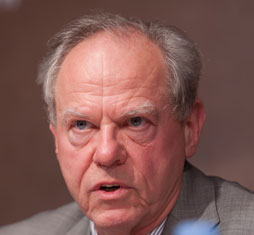
Religious freedom and pluralism and state neutrality in spiritual issues are crucial for democracy, freedom of speech, social cohesion after the war, and more practically, for European integration. This is in the main interest of all Ukrainians, both religious and secular.

I love the fact that, totally unexpectedly, training for religious communities has become a part of what I do, especially in the last five years; I have helped individuals negotiate, and I get to hang out at rabbinic and cantorial conferences.

For me, the best scenario is that the completely historically exceptional civic energy that has exhibited itself over the past several months in Israel would be preserved and channeled to broad grassroot engagement in questions of living together.

The FoRB perspective is based on the recognition of women’s agency and on the context of free choice in deciding whether to wear hijab or not. It also assumes that multiple manifestations will be acceptable and achievable by women in different parts of the world; it must be possible for women to wear hijab and to not wear hijab. This necessarily means that compulsory hijab is against freedom of religion or belief.

One can have an ad hoc solution for Leyla Şahin allowing her to wear a headscarf at Istanbul University 30 years ago, but one must also consider how to protect those women in eastern Turkey who did not want to wear a headscarf. Is it possible to have a general rule in these circumstances? Or are you going to proceed with local rules for each situation? I’d naïvely say that local rules are better, but law is not about local rules.

What we find is that there’s a hunger and a passion for religious identity and the free exercise of religion virtually everywhere in the world. When I go through the basic protections of freedom of religion (for example, in Article 18 of the Universal Declaration of Human Rights) in a place where human rights are very controversial, like Indonesia or China, I ask the participants—the students or professors who are participating in these programs—which of these dimensions are unimportant to them. They tend not to think them to be unimportant.
The main lesson, specifically as it concerns religion, is that we humans are social animals. We want and we even need to belong to a group. Émile Durkheim, a very famous theoretician of religion, famously said, the difference between religion and magic is that there’s no church of magic. Magic, superstition, and the like are individually practiced whereas religion is inherently social. And I think people need that.

[T]here will at times be a break between American values and American practices because international relations is a very difficult space to operate in. Russia and China don’t burden themselves with having concerns about human rights. We do in a certain sense that hampers our diplomacy, limits our freedom of movement. But at the same time, I wouldn’t want it any other way.

